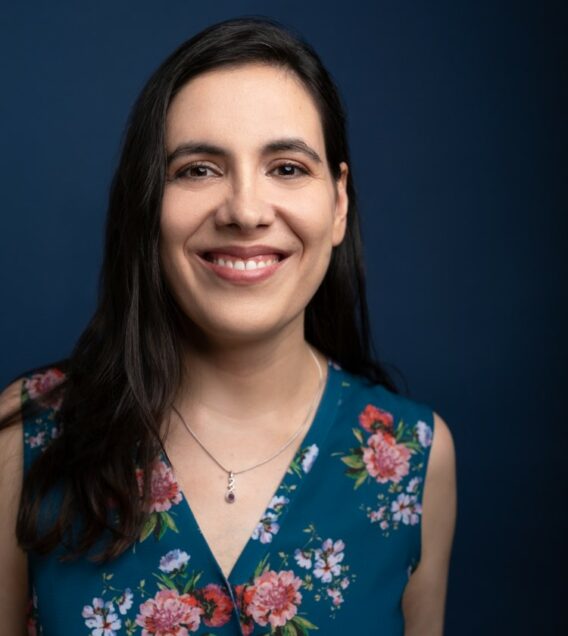What would you pack if you were heading to Mars?
Boston University scientists explored this question at an interdisciplinary conference held on Friday, May 24 entitled “Space Travel with Earth Wisdom.”
The event brought together researchers at the intersection of ecology, botany, biology, bioinformatics, data-science, and space science to look at how humans can approach space travel ethically and sustainably and how we can use the wisdom of this planet to bring life to Mars.

“We want to think about this enterprise not just in terms of ‘what do we need to survive on Mars,’ but rather ‘what do we need to live,’” said Marianna Felici, PhD, a research scientist at the Center for Space Physics who is organizing the conference. “The idea is to support space exploration, however the applications of this project are also connected to global warming. How can we terraform Mars, which is a desert? How can we produce nutrients to feed the astronauts while sequestering carbon from the atmosphere?”
The conference is part of “First trip to Mars: How to Pack Light,” a Focused Reseaerch Program funded by the Rafik B. Hariri Institute for Computing and Computational Science & Engineering. The project grew out of an idea that Felici developed with Astronomy Professor Paul Withers, now chair of astronomy, while building a model of the Martian ionosphere based on data collected by the Radio Occultation Science Experiment (ROSE) on the NASA MAVEN spacecraft. The goals of “First trip to Mars: How to pack light,” led by Felici and Withers, is to support NASA’s plans to land humans on Mars in the 2030s in a holistic and sustainable way.

Felici, who considers herself an environmentalist, said she has always been interested in finding the connection between her field, space science, and the fight against global warming. She developed the concept and title for this conference after reading Braiding Sweetgrass: Indigenous Wisdom, Scientific Knowledge, and the Teachings of Plants, a 2013 book written by botanist Robin Kimmerer about Indigenous knowledge and relationship with the natural world.
In developing the project and the conference, Felici started contacting people whose work she had read about in the BU Brink or in scientific journals — including BU Professor of Biology, Bioinformatics, and Biomedical Engineering Daniel Segrè, BU Associate Professor of Biology Jennifer Bhatnagar, and BU Assistant Professor of Biology Jeffrey Marlow.

”This is a relatively unusual experience for those of us on the astronomy and space science side of the street to get together with folks in the biology department, so that aspect has been a positive and a rewarding one,” Withers said. “It’s also given me and others a good exposure to Hariri and to the faculty of CDS. It is a wonderful opportunity to explore potential connections between groups in these different areas on campus. That’s a nexus that will be important in the future as further exploration of Mars takes place and the first human footsteps take place there.”
Assistant Professor of Biology Jeffrey Marlow, whose lab explores the diversity, metabolic activities and limits of life on Earth and beyond — including whether life could exist on Mars — said the conference raises important questions for biologists as well.
“Thinking about what one might want to ‘pack,’ for a trip to Mars is really an exercise in identifying the aspects of our planet that are most essential for creating a habitable environment,” he said. “If you’re packing light for a weekend trip, you’d want to bring things that have multiple uses — maybe a shirt that could work on the beach and at a restaurant. It’s the same thing here — and from the microbial side, we’re looking at organisms that can do multiple useful things at once, like consume greenhouse gases and make fuel.”
Professor of Biology, Bioinformatics, and Biomedical Engineering Daniel Segrè, who studies the dynamics and evolution of metabolic networks in living systems said he is grateful to Felici and Withers for launching this “very unique, broad, and inspiring collaboration.”
“For me even just spending time to reflect on whether and how materials found elsewhere in the solar system could support life is quite exciting. Microbes have this incredible repertoire of tricks to grow under the strangest conditions and to modify their surrounding environment. They are a powerful, underappreciated force of nature, and they need to be part of any plans for the sustainability of life on Earth and beyond,” he said. “Under Marianna’s leadership, and with the help of Hariri’s SAIL team, a lot of progress was made in increasing accessibility to computational tools that can evaluate the capacity of different microbes to grow on different environments. This is the seed of a scientific endeavor that I hope will continue growing.”
Felici and other organizers hope that attendees walk away with a sense of how machine learning and artificial intelligence can be used in space exploration, as well as the many challenges that traveling to Mars presents, but also with a much deeper connection with planet Earth and all its inhabitants.
“Enabling sustainable Mars exploration is a fine goal we are supporting, while hoping to heal our own planet,” she said. “We want to co-create this path with the people that are the most connected to our planet, with the voices and wisdom on this planet: on Earth there is no need to terraform, this planet is already filled with life, yet this life has been squandered.”